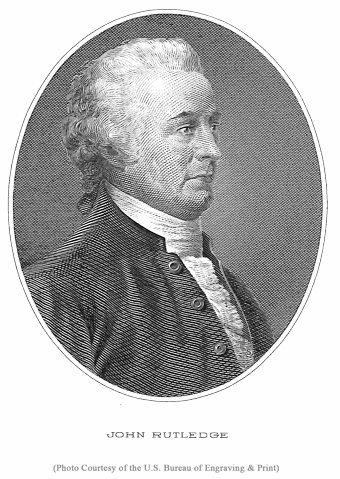John Rutledge lived between 1739 and 1800, and served as a politician, governor and judge during the formative years of the United States.
Rutledge was both a witness and participant in the establishment and signing of both the Declaration of Independence and U.S. Constitution and eventually became the second Supreme Court Chief Justice to serve in the United States.
Early history
Rutledge was born in Charleston, South Carolina, in 1739 and took a strong interest in law from an early age. He later attended Inns of Court in England, where he won two cases in the English court system during his tenure as a student. Upon returning from England, Rutledge successfully practiced law, and become involved in pre-revolutionary politics in 1765 when he chaired a committee that urged the English House of Lords to reject the Stamp Act. Although the measure was unsuccessful, it served as Rutledge’s first act of political involvement.
Political office
In 1774, Rutledge became a delegate to First Continental Congress and was elected as President of South Carolina in 1776. He resigned from this post in 1778 after refusing to sign a new state constitution that he believed would turn the state into a direct democracy and lead to chaos.
He was elected to lead South Carolina again in 1779 after the state constitution was revised and changed the title from “President” to “Governor.” After his term ended in 1782, he was again elected to the Continental Congress until 1783.
Supreme Court Justice
President George Washington nominated Rutledge to be an Associate Justice in 1789, however he resigned the post in 1791 to become Chief Justice of the South Carolina Supreme Court until 1795. He was nominated again by Washington to become the country’s second Chief Justice of the United States in 1795, where he held a recess position for four months. However, the Senate refused to confirm him.
During his short four-month tenure, he decided on two cases. In United States v. Peters, it was decided that the U.S. had no jurisdiction over crimes committed against Americans in international waters. In Talbot v. Janson, the Court ruled that Americans who gain citizenship of another country or renounce state citizenship do not waive their U.S. citizenship status.
Later life
After the Senate refused to confirm him, Rutledge retired from public life and died in 1800.
In addition to setting a precedent over multiple citizenship that is still relevant today, Rutledge also served as a founding trustee at the College of Charleston.








